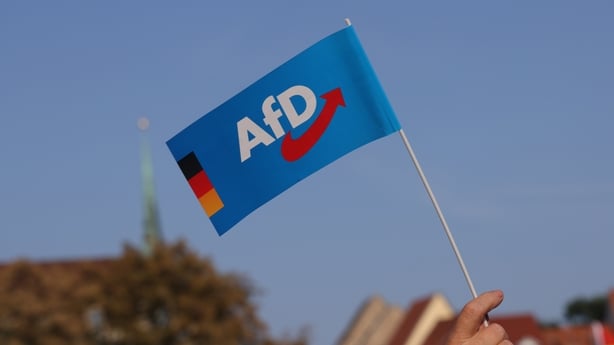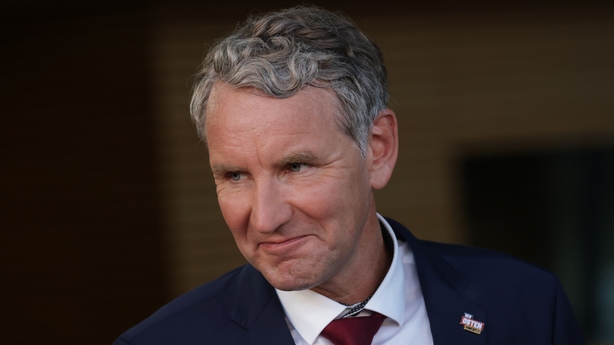German Chancellor Olaf Scholz has called the results of two regional elections that saw big wins for the far-right AfD and losses for his coalition "bitter" and urged mainstream parties to form governments without "right-wing extremists".
The Alternative for Germany (AfD) became the first far-right party to win a state legislature election in Germany since World War II with its result in weekend voting in Thuringia.
It came a close second behind the conservatives in Saxony, projections last night showed.
But the AfD, deemed "right-wing extremist" by security officials in both of the east German states, is unlikely to be able to govern as other parties have so far refused to collaborate with it to form a majority.
Still, the nationalist, anti-migration and Russia-friendly party could secure enough seats in both states to block decisions requiring a two-thirds majority such as the appointment of judges or top security officials, giving it unprecedented power.
"The results for the AfD in Saxony and Thuringia are worrying," Mr Scholz said in a statement to Reuters.

He clarified he was talking as a politician for his centre-left Social Democrats (SPD).
"Our country cannot and must not get used to this," he said.
"The AfD is damaging Germany. It is weakening the economy, dividing society and ruining our country's reputation," he added.
With a year to go until Germany's national election, the results punished Mr Scholz's fractious coalition, which could aggravate infighting.
All three ruling parties lost votes, with only his SPD comfortably clearing the 5% threshold needed to stay in the two states' parliaments.
Populist leftist newcomer, the Sahra Wagenknecht Alliance, founded by a former member of the East German Communist Party, did better than all of three coalition partners in its first state elections, coming in third place.
"Sunday's election results are bitter - for us too," Mr Scholz said.
But he noted that the more dire predictions, that the SPD might fall out of a state parliament for the first time, had not materialised.
Junior coalition partners the Greens and pro-business Free Democrats both fell out of the Thuringia state assembly.
The results could also pressure the government to be tougher on immigration and intensify the debate over support for Ukraine, issues that dominated the campaign.

During the election campaign, the AfD had capitalised on dissatisfaction with the government, including anger over migration and misgivings about support for Ukraine.
Alice Weidel, the co-leader of the AfD, hailed the result in as a "historic success", while the party's other co-leader, Tino Chrupalla, said the party had a "clear mandate for government" in Thuringia.
Mr Chrupalla said both states had sent the message that "there should be a change of politics" and the AfD was "ready and willing to talk to all parties".
However, the CDU's general secretary Carsten Linnemann said today voters knew "we do not form coalitions with the AfD".
Thuringia, one of Germany's more rural states, was an early centre of support for the Nazi party, which first came to power there in 1930 as part of a coalition government.
Bjoern Hoecke, the controversial head of the AfD in the state, told the ARD broadcaster his party was the "people's party in Thuringia".
"We need change and change will only come with the AfD," he said, hailing the "historic result".
Mr Hoecke has often caused outrage with his outspoken statements and was fined twice this year for deliberately using a banned Nazi slogan.
The exit polls also showed a good night for BSW, a new party founded by the firebrand politician Sahra Wagenknecht after she quit the far-left Die Linke.
BSW scored between 14.5% and 16% in Thuringia and between 11.5% and 12% in Saxony, according to the polls.
Ms Wagenknecht's party has appealed to voters in eastern Germany with a dovish stance towards Russia and calls for a radical crackdown on immigration.
Other parties' refusal to work with the AfD potentially leaves BSW as the kingmaker in Thuringia and Saxony, despite serious policy disagreements with potential partners, especially on Ukraine.

